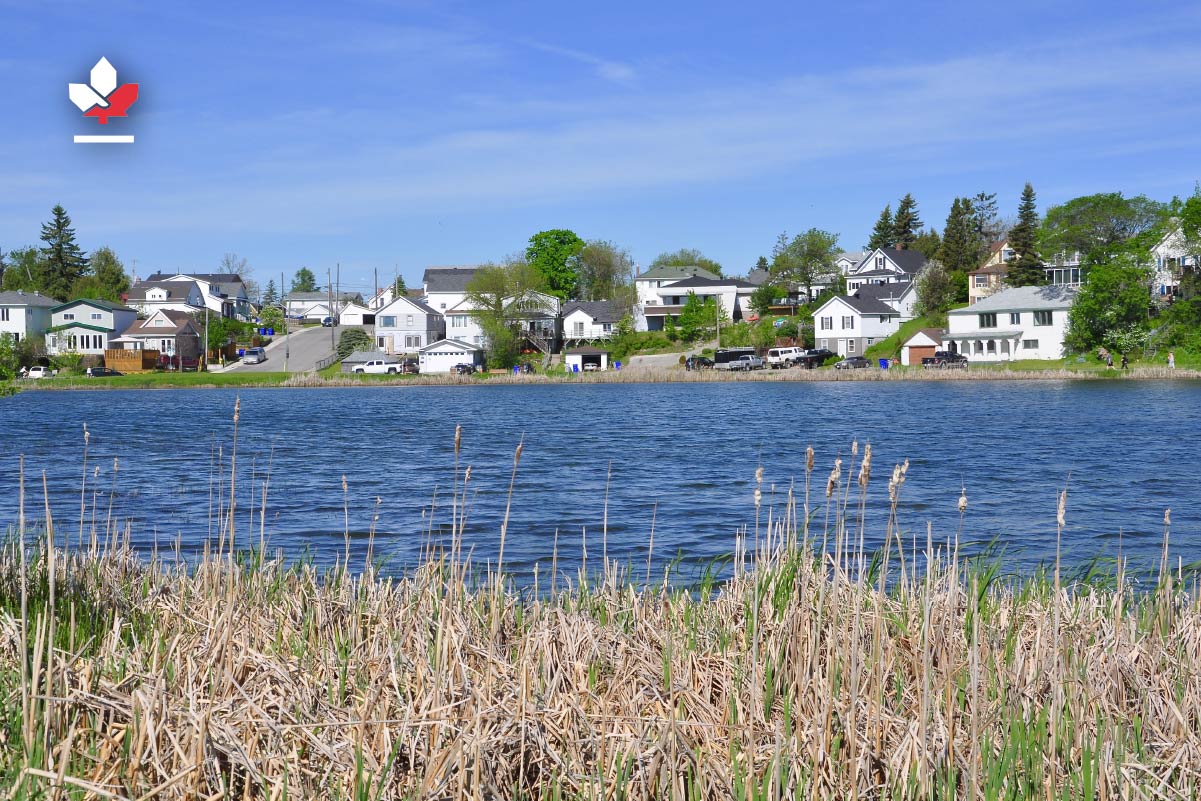Settle in Rural Canada With The Rural and Northern Immigration Pilot (RNIP)
February 9, 2024
|
The Canadian government, in partnership with Immigration, Refugees and Citizenship Canada (IRCC), has introduced various immigrant-friendly and liberal border policies that have swelled Canada’s immigration numbers. Among the various immigration programs offered by the Rural and Northern Immigration Pilot (RNIP) stands out as a unique initiative to address labor market needs in rural and northern communities.
Through the RNIP, eligible candidates can secure employment opportunities in regions outside major urban centers, contributing to the growth and sustainability of local economies.
Ready to see what opportunities the RNIP has for you? Uncover the opportunities provided by the Rural and Northern Immigration Pilot, ensuring your smooth integration into Canada’s rural and northern communities while addressing local labor shortages!
What is The Rural and Northern Immigration Pilot (RNIP)?

The Rural and Northern Immigration Pilot (RNIP) is a Canadian immigration program designed to expand the benefits of economic immigration to smaller communities. It is a community-driven program where participating communities recommend candidates for permanent residence to the IRCC for a final decision.
The program aims to help smaller communities attract and retain skilled workers by creating a path to permanent residence for eligible foreign workers. By facilitating the integration of immigrants into rural and northern communities, the RNIP contributes to economic growth, community development, and the overall sustainability of these regions.
How Does the RNIP Work?
The RNIP operates according to the following general steps:
Step 1: Job and Skills Vacancies Identified by Participating Communities
Participating communities identify local job vacancies and skill shortages, then recommend eligible candidates for permanent residency based on these criteria.
Step 2: Secure A Valid Job Offer
Applicants must secure a valid job offer from a designated employer in one of the participating communities to qualify for the program.
Step 3: Submit Your Permanent Residency Application to The IRCC
Once selected, candidates submit their applications for permanent residency to IRCC for processing.
Step 4: Receive Canadian PR
Successful applicants and their families are then granted permanent residency in their selected participating rural community, allowing them to live and work there.
Please Note
Each participating rural and northern community in the RNIP has its own job search process, community recommendation application process, and additional eligibility requirements.
Who Can Apply for the RNIP?
To be eligible to apply for RNIP, you must meet the following requirements, which include:
- Qualifying work experience or graduated from a publicly funded post-secondary designated learning institution (DLI) in the recommended community,
- Meet or exceed the minimum set language requirements,
- Meet or exceed the minimum set educational requirements,
- Sufficient settlement funds to support your transition into the community,
- Demonstrate intentions to live and work in the community permanently,
- Satisfy participating community-specific requirements, and
- If you’re applying within Canada, you must have temporary resident status.
RNIP Work Experience
The minimum work experience required to apply for the RNIP is:
- 1 year (1,560 hours) obtained in the previous 3 years,
- Excluding unpaid work experience gained from internships, volunteering, and self-employed workers (except medical practitioners), and
- Work experience must be gained from duties and responsibilities listed on your job offers National Occupational Classification (NOC) code.
RNIP And International Students
You may be exempt from the RNIP’s work experience requirement if you’re an international student who graduated with a:
- 2 years or more full-time credentials from a post-secondary DLI received over 18 months before you submitted your application, and
- 2 years or less full-time Masters or higher degree obtained over 18 months before submitting your application.
The above does not apply if you are an international student who:
- Study program involved more than half English or French language learning or instruction,
- Half your study program involved distance learning, and
- Was awarded a scholarship or fellowship requiring you to return to your home country to apply the knowledge gained from your studies.
RNIP Language Requirements
Your job offer's NOC code will determine the language requirements you must satisfy to be eligible to apply for the RNIP. This indicated using Canadian Language Benchmarks (CLB) and Niveaux de compétence linguistique canadiens (NCLC) levels. As per your job offers NOC 2021 Training, Education, Experience, and Responsibilities (TEER), minimum language requirements can be outlined as follows:
| TEER Categories | CLB/NCLC Levels |
|---|---|
| TEER 0 and 1 | CLB/NCLC 6 |
| TEER 2 and 3 | CLB/NCLC 5 |
| TEER 4 and 5 | CLB/NCLC 4 |
Please Note
Make sure your test results were obtained from one of the following designated language tests:
- Canadian English Language Proficiency Index Program (CELPIP),
- International English Language Testing System (IELTS),
- Test d’évaluation de français (TEF Canada),
- Test de connaissance du français (TCF Canada), and
- Pearson Test of English (PTE Core).
Your language test results must be less than 2 years old at the time of your application’s submission.
RNIP Educational Requirements
The educational requirements you need to apply for the RNIP include:
For Canadian DLI Graduate Applicants
A Canadian educational credential, such as a:
- Secondary (high school) diploma,
- Post secondary certificate, degree or diploma,
For Foreign Graduates
If you received a foreign educational credential, you must:
- Obtain an educational credential assessment (ECA) report from a professional or designated organization
- Ensure the ECA you obtained is less than 5 years old,
- Get an ECA that demonstrates your educational credentials are equal to Canada’s secondary/high school diploma and post-secondary certificate, degree, or diploma.
RNIP Settlement Funds
Except for applicants already working in Canada, you must demonstrate you have sufficient funds to support yourself and any family members.
You can learn more about settlement funds and proof of funds for Canadian immigration with our guide.
RNIP Community-Specific Eligibility Requirements
Each participating RNIP community has a set of specific eligibility requirements for prospective immigrant applicants. You can learn more about each participating community’s eligibility requirements from their website.
| RNIP Participating Communities | Community Websites |
|---|---|
| North Bay, ON | https://northbayrnip.ca/ |
| Sudbury, ON | https://investsudbury.ca/why-sudbury/move-to-sudbury/rnip/ |
| Timmins, ON | www.timminsedc.com |
| Sault Ste. Marie, ON | www.welcometossm.com |
| Thunder Bay, ON | https://gotothunderbay.ca/ |
| Brandon, MB | www.economicdevelopmentbrandon.com |
| Altona/Rhineland, MB | www.seedrgpa.com |
| Moose Jaw, SK | https://www.moosejawrnip.ca/ |
| Claresholm, AB | www.claresholm.ca |
| Vernon, BC | https://rnip-vernon-northok.ca/ |
| West Kootenay (Trail, Castlegar, Rossland, Nelson), BC | https://wk-rnip.ca/ |
What Are The Job Offer Requirements for the RNIP?

To be eligible to work in one of the participating RNIP communities, you must obtain a job offer that meets the following requirements.
- Job offer must be in the community,
- The employer runs their business in the participating community,
- Full-time employment (minimum 30 hours per week),
- Non-seasonal employment (scheduled, regular payment)
- Employment is permanent (no set end date), and
- Wage or salary must meet or exceed Canada’s Job Bank minimum wage or salary for your job offers (NOC).
Please Note
Your job offer cannot be obtained from a consulate, employment, or staffing agency and business you or your spouse or common-law partner owns.
How Can I Apply for Canadian PR Using The RNIP?
As of September 23, 2022, all RNIP permanent residency applications are conducted online via the IRCC’s permanent residence online application portal. While completing your application, ensure you fill out the following forms:
- Generic Application Form for Canada (IMM 0008),
- Schedule A – Background/Declaration (IMM 5669),
- Additional Family Information (IMM 5406),
- Supplementary Information - Your travels (IMM 5562),
- Document Checklist [IMM 5987],
- Schedule 1 - Rural and Northern Immigration Pilot [IMM 5911],
- Statutory Declaration of Common-law Union [IMM 5409],
- Separation Declaration for Minors Travelling to Canada [IMM 5604],
- Offer of Employment to a Foreign National - Rural and Northern Immigration Pilot [IMM 5984], and
- Use of a Representative [IMM 5476].
The total application fee for RNIP is 1,365 CAD.
Please Note
Applicants between the ages of 14 and 19 may need to submit their biometrics results within 30 days of receiving the lettered request from the IRCC.
Canada Work Permit
As an RNIP applicant, you may be eligible to apply for a 1-year work permit. The work permit:
- Is solely for the RNIP,
- Expires after a year, and
- Is an employer-specific (closed) work permit enabling you to work only for the employer that offered you a job in the participating community.
When applying for your work permit, ensure you include a/an:
- Acknowledgment of receipt letter,
- Job offer number,
- IMM 0112 form: Recommendation from the designated Economic Development Organization – Rural and Northern Immigration Pilot,
- Proof of work experience as set by the RNIP,
- Education credentials as per RNIP guidelines, and
- Language test results as per RNIP requirements.
Benefits of Immigrating to Canada Using The RNIP

Pathway to Permanent Residency in Rural Canada
The RNIP provides a streamlined route to obtaining permanent residency for individuals and families willing to settle in rural communities across Canada. This initiative addresses demographic challenges and labor shortages in these regions, offering immigrants a chance to build a future in a vibrant, close-knit environment.
Find out why you should move to rural Canada.
Community-Driven Program
Unlike traditional immigration programs, the RNIP is community-driven, meaning local stakeholders actively participate in the selection process, including employers, municipalities, and community organizations. This approach ensures that newcomers are integrated seamlessly into their new communities, fostering a sense of belonging from the outset.
Support for Canada’s Smaller Communities
By attracting skilled workers and their families to smaller communities, the RNIP contributes to their growth and development. Immigrants bring valuable skills, expertise, and cultural diversity, enriching the social fabric of these areas and revitalizing local economies.
Provide a Boost to Local Economic Performance in Canada
The presence of newcomers under the RNIP injects vitality into local economies, stimulating demand for goods and services, creating job opportunities, and supporting small businesses. As immigrants settle and contribute to the workforce, they actively drive economic growth and prosperity in rural Canada.
Learn more about 5 amazing small towns in Canada.
Enhanced Social Services
Immigration through the RNIP also enhances access to essential social services in rural communities. With an influx of new residents, local governments can invest in infrastructure, healthcare, education, and other vital services, ensuring that newcomers and existing residents enjoy an improved quality of life.
FAQs
How Long Does The Application Process For The RNIP Take?
The application process for the RNIP typically takes around 12 to 18 months from start to finish, depending on various factors such as the complexity of your case and the processing times of immigration authorities.
Are There Settlement Services Available For Newcomers Under The RNIP?
Yes, settlement services are available for newcomers under the RNIP, including language classes, job placement assistance, and orientation programs, to help facilitate their integration into Canadian society.
Can I Apply to Multiple Communities Under The RNIP?
Yes, you can apply to multiple communities under the RNIP, but you must meet the specific eligibility criteria set by each participating community and submit separate applications for each location you're interested in settling in.
